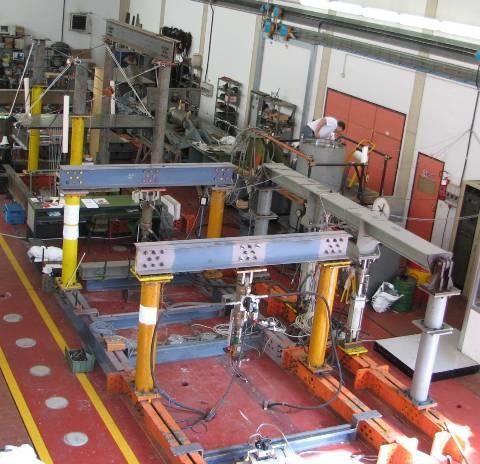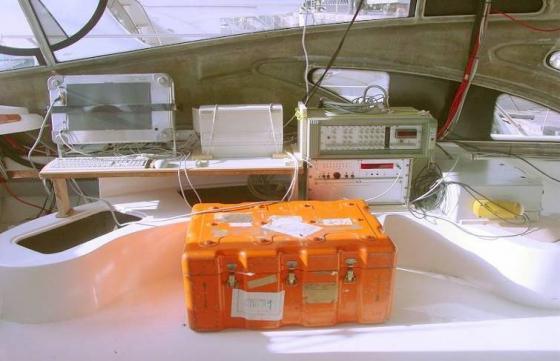Since 1964 the laboratory allows the implementation of tests and sea trials on full and large scale specimens of ships and offshore structures. It was originally established in order to solve the large number of problems of shipbuilding: it is indeed possible to design and to perform unconventional testing, not yet defined in current practice, as well as to select most adequate instrumentation, to draft testing specifications according to the goals of the research and to critically analyze the measured data. The Laboratory is equipped with devices and tools for static and dynamic tests on large-scale models of ship and offshore structural components and for research into a variety of problems related to ship strength. In several cases the testing equipment and the measurement systems were not bought on the market rather they were designed and built on purpose as, beside structural mechanics and shipbuilding skills, the Laboratory can rely on know-how about electronic systems (hardware e software). The achieved results have contributed significantly to the verification of new design criteria, so enhancing the development of naval architecture and marine engineering.


Some examples of activities carried out
• Structural response to static and dynamic loads of ship and offshore structures, also in large scale and including composite structures, with emphasis on collapse and fatigue tests of welded structures in general
• Measurement of forces, stress, deflection and strain patterns of large scale and full scale structures under working conditions (e.g. pressures and deformations on ship hulls)
• Dynamic and impact pressure measurements due to fluid motions (slamming and sloshing)
• Hull motions measurements using traditional systems (e.g. accelerometers, rate-gyro, gyroscopes, etc.) as well as Real Time Kinematic GPS systems
• Acceleration measurements in different frequency ranges either on small and large scale specimens or full scale structures aimed at defining displacements, vibrations and structural noise
• Forces and moments measurements developing load cells “on demand” for particular applications
• Tests on structures under external pressure (pressure chamber tests)
• Characterization of visco-elastic materials for vibration damping
• Design and construction of structural monitoring systems for ships and offshore structures
• Development of ad hoc sensors and measuring systems for specific needs
Contact person: Prof. Cesare Mario Rizzo
Phone: +39 010 335 2272 / 2422
E-mail: cesare.rizzo@unige.it
Address: Viale Cambiaso 6, 16145 Genova